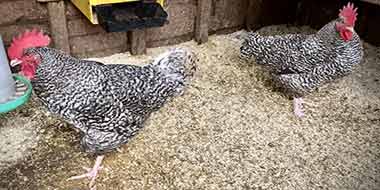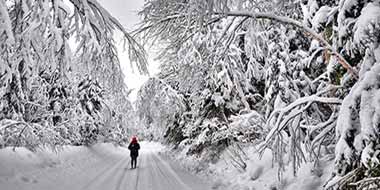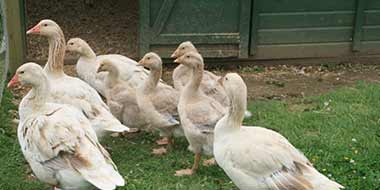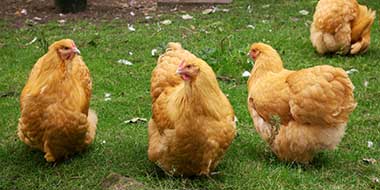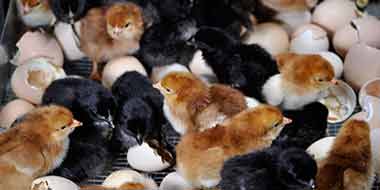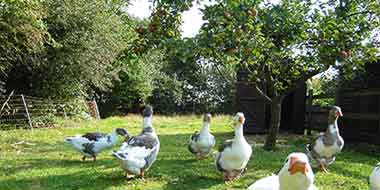Frostbite or a frozen comb usually affects the male of breeds with larger combs, the Leghorn being a classic example. It causes the tips of the comb to turn black and in time, drop off.
Fertility during the next season can be affected although in mild cases doesn’t seem to be a problem. Hens will usually sleep with their head tucked under a wing when it’s cold and their combs are of course far smaller with fewer extremities to keep warm.
There are two distinct problems that can occur. A frozen comb where the tips of the comb freezes on a cockerel and frostbite where moisture from humid air condenses on his cold comb and is then frozen in the cold air, again causing similar damage to the comb.
Frozen comb
Vaseline can be applied to the comb on particularly cold nights. Ensuring a cockerel has a full crop of mixed corn before bed can help him keep his body temperature up and providing him with a number of hens to roost with can help as he will usually have hens either side of him who will produce heat around him.
Frostbite
Frostbite is caused when the humidity of the air in the hen-house is high and the temperature drops below freezing. If your chickens live in a well insulated house or one with poor ventilation, then this tends to be when they are at a greater risk. Just as glasses steam up when they are cold and you enter a warm, humid room, the same can happen to his comb. It gets cold and he goes into the coop in the morning when the house has been kept warm and humid by all of those sleeping chickens and droppings. He gets moisture on his comb from the warm humid air, then goes back out into the cold where it is frozen. If there is good ventilation in the coop, this cannot happen.

